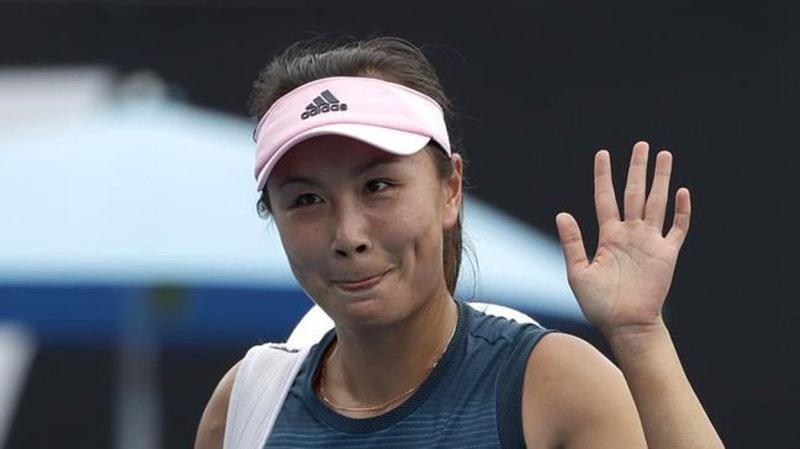
IOC call with Chinese tennis star Peng raises more questions
A video call between Olympic officials and Chinese tennis player Peng Shuai, whose nearly three-week disappearance from public view sparked an outcry, was meant to reassure the world that she was safe — but instead has raised more questions.
Concern grew in the last week for the former No. 1-ranked doubles player — who hadn’t been seen since accusing a senior Chinese official of sexual assault on Nov. 2. Tennis stars and fans alike demanded to know #WhereIsPengShuai, and the head of the Women’s Tennis Association threatened to pull lucrative events from China.
On Sunday, the International Olympic Committee said Peng spoke to officials, including IOC President Thomas Bach, in a 30-minute video call from Beijing. According to the organization’s statement, she reassured them that she was well and thanked them for their concern — while asking for privacy.
The IOC posted a photo that shows Bach facing a screen on which Peng appears but did not release video of the call. On the same day, China Open posted videos and photos of her appearance at a youth tennis tournament in Beijing that morning.
